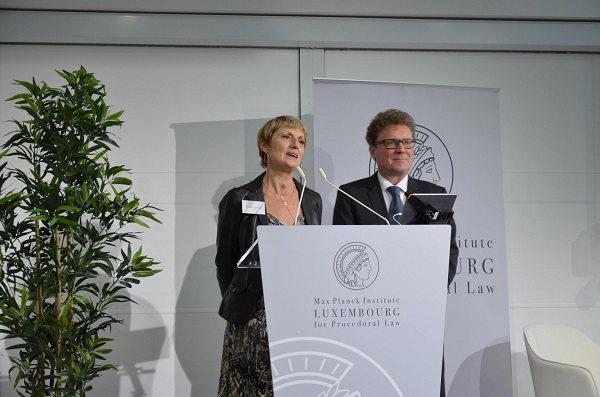 Credit: credits: MPI Luxembourg
Credit: credits: MPI Luxembourg
About a century after the end of the Great War, the Max Planck Institute (MPI) Luxembourg for Procedural Law is bringing together researchers from universities worldwide at the conference “Peace Through Law: The Versailles Peace Treaty and dispute settlement after WWI”.
Organised under the patronage of the Ambassadors of France and Germany in the Grand Duchy, the conference is designed to investigate this milestone in history and its impact on the current judicial system.
“The Versailles Peace Treaty was a landmark in the history of international relations, which shaped the international law and courts that exist today. About a century after its conclusion, the MPI Luxembourg deemed important to reflect on the notion of ‘peace through law’, and on the current practices in the peaceful settlement of international conflicts”, said Prof. Ruiz Fabri, Executive Director of the MPI Luxembourg.
In 1919, the Versailles Peace Treaty signed the end of World War I and established an ambitious new framework for international relations. The Treaty gave birth to the League of Nations, the first world organisation created to ensure peace. The Permanent Court of International Justice, and international tribunals also came to life as a result of the Treaty.
One would be curious to know the many correlations with the way institutions, such as the International Court of Justice, the European Court of Justice and the European Court of Human Rights, operate nowadays.
“The Max Planck Institute Luxembourg has the mission to investigate judicial systems, look for best practices and try to develop possible avenues for the future. The aim is to adapt the existing systems to new challenges and provide valuable advice to legislators”, added Prof. Hess, Director of the MPI Luxembourg.
On 6 December, Dr Heinrich Kreft, Ambassador of Germany in Luxembourg, and Mr Bruno Perdu, Ambassador of France in Luxembourg, welcomed the 110 participants to the conference held in the premises of the MPI Luxembourg. Prof. Nathaniel Berman, from Brown University, then gave a lecture to the assembly. The next two days comprise a series of panels and a roundtable in which academicians from Australia, Belgium, France, Germany, Greece, Luxembourg, the Netherlands, New Zealand, Switzerland, the UK and the US are taking part. The discussions will
later be addressed in a book meant to be published in 2019, 100 years after the conclusion of the Versailles Peace Treaty.








